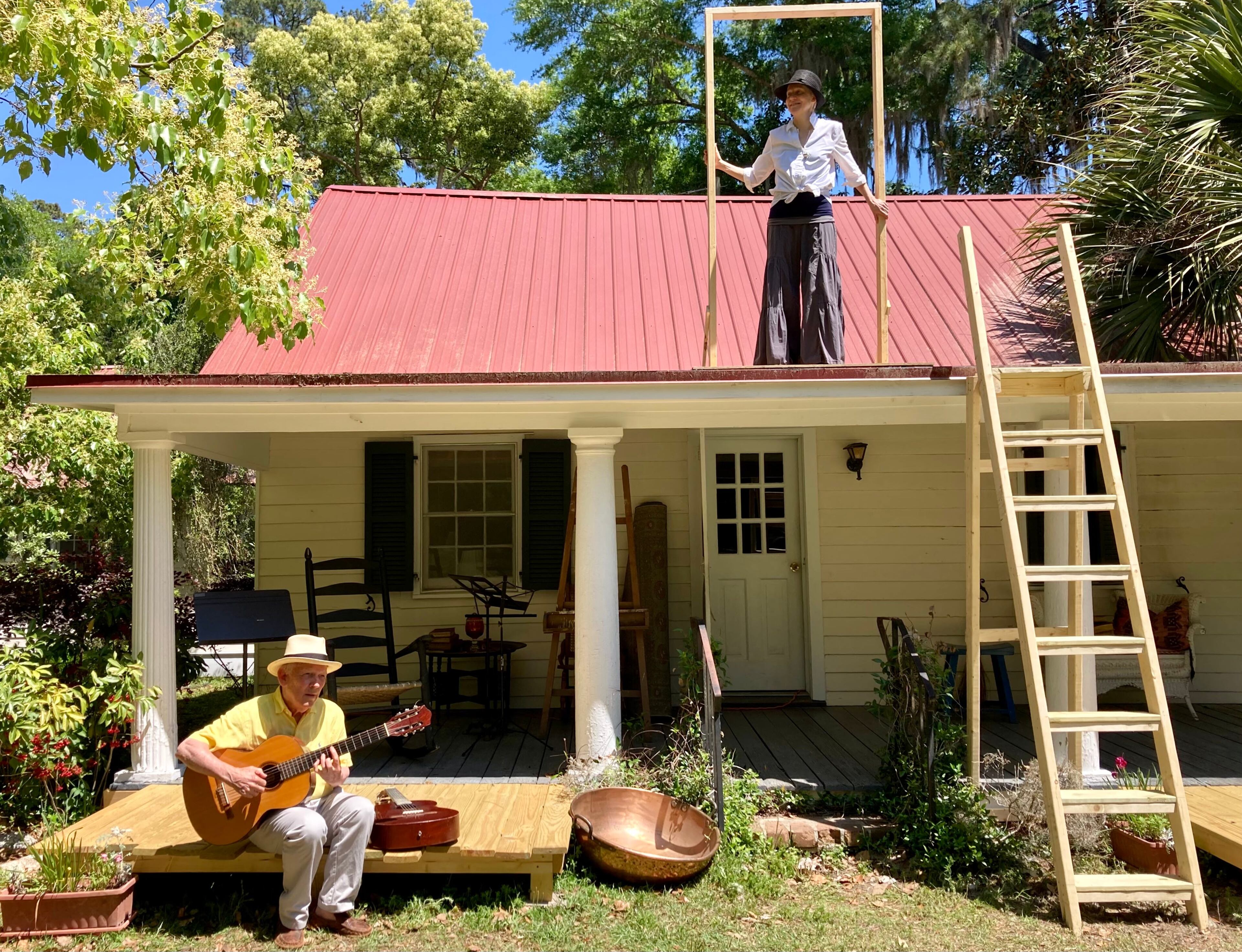Savannah production teams deliver the goods despite pandemic protocols

In the recent outdoor performance of Horton Foote’s “A Coffin in Egypt,” the aging Myrtle Bledsoe – played with compassion and nuance by Obie-winner Maude Mitchell – strode through a graveyard created out of books that had been painted red. Mitchell was wearing a microphone, so the monologue continued as she walked farther from the audience.
As Myrtle neared the bank of the Vernon River, she turned to the audience and repeated the play’s title as if she knew that death would soon call. Just at that moment, the wind kicked up – one of those magical moments of live theater that can’t be anticipated or scripted.
Of course, there was plenty of talent and planning behind that pivotal moment in the play, which was presented by Carvers Barn in conjunction with Dovetail Productions and Mabou Mines. The late director Lee Breuer, music director Carver Blanchard, production designer Jeroy Hannah and other creative folks did the hard work behind the scenes and put the pieces in place for Mitchell to make magic happen.
As live performances steadily return to the local scene, production teams are finding novel and effective ways to navigate the pandemic’s final months. At least we hope these are the final months.

The Savannah Music Festival made especially good use of the restored Metal Building at Trustees' Garden – a big space with lots of hard surfaces that might not seem a good fit for high-quality productions. Capacity was limited, and some sight lines were disrupted, but the talented sound team made the space seem warm and intimate for the performances by Amythyst Kiah and Jontavious Willis that I saw on the festival's final weekend.
The SMF audience was spread out in pods with several seats each, but the ticketholders farther from the stage had the option to watch monitors with an excellent live stream.
I am excited to see what the SMF plans for their fall season, which is scheduled for October 14 to 24. Let’s hope that few pandemic-related adjustments will be necessary, but the festival staff clearly knows what to do.

For their recent cabaret fundraiser, Savannah Repertory Theatre made smart adjustments to the lobby of their new space in the old Southern Motors building on Broughton Street. Fabric elements were subtly added to contain the echoes and allow the distanced audience to focus on the beautiful voices of the performers.
But a recent trip to Charleston for the Spoleto Festival production of “The Woman in Black” revealed some of the technical risks of productions with pandemic protocols. The play was originally scheduled for the bus shed at the Charleston Visitor Center but was moved to Festival Hall, a versatile venue formerly known as the Memminger Auditorium.
The actors needed mics so that those of us near the rear could focus on the subtleties of the dialogue, and the recorded sound effects were both too loud and too muffled from our seats. The distancing made the space feel safe, but the actors had too much to overcome to convey the horrors in the plot.
We will eventually hit a point where production teams won’t have to worry about distancing, about masks, about the myriad impacts of reduced capacity. But maybe those future productions will be even better because of the technical lessons learned during the pandemic.
Bill Dawers writes the City Talk column for the Savannah Morning News. He can be reached via citytalksavannah@gmail.com and @billdawers on Twitter.
This article originally appeared on Savannah Morning News: Savannah production teams deliver the goods despite pandemic protocols
